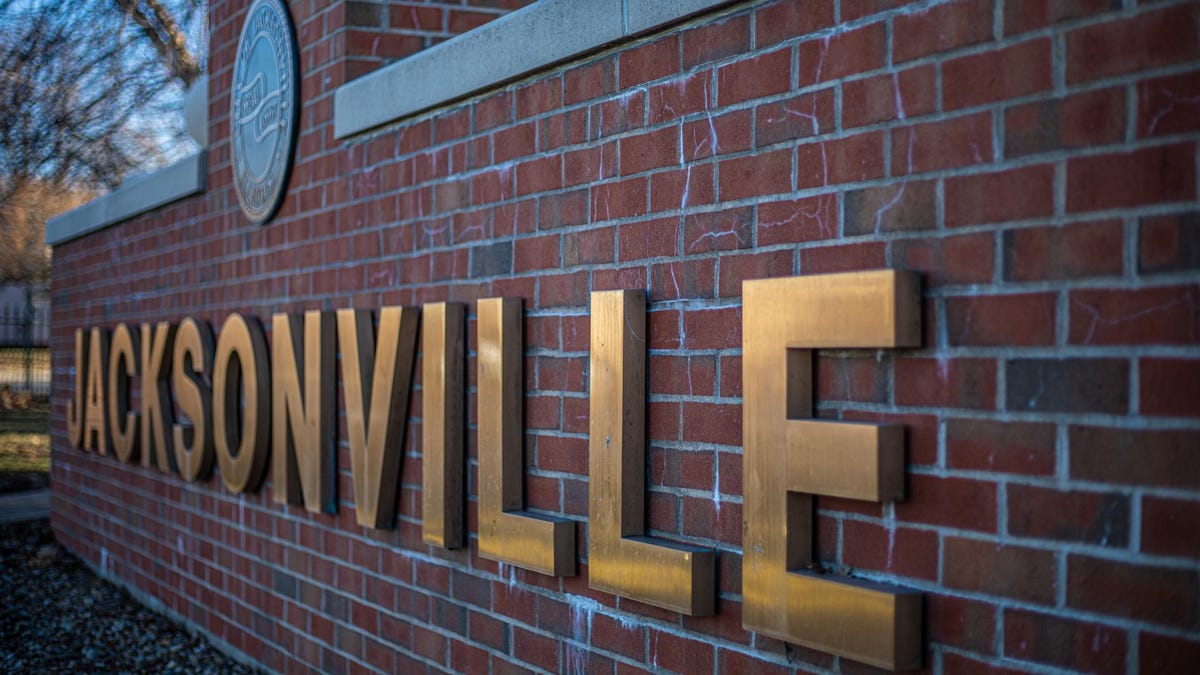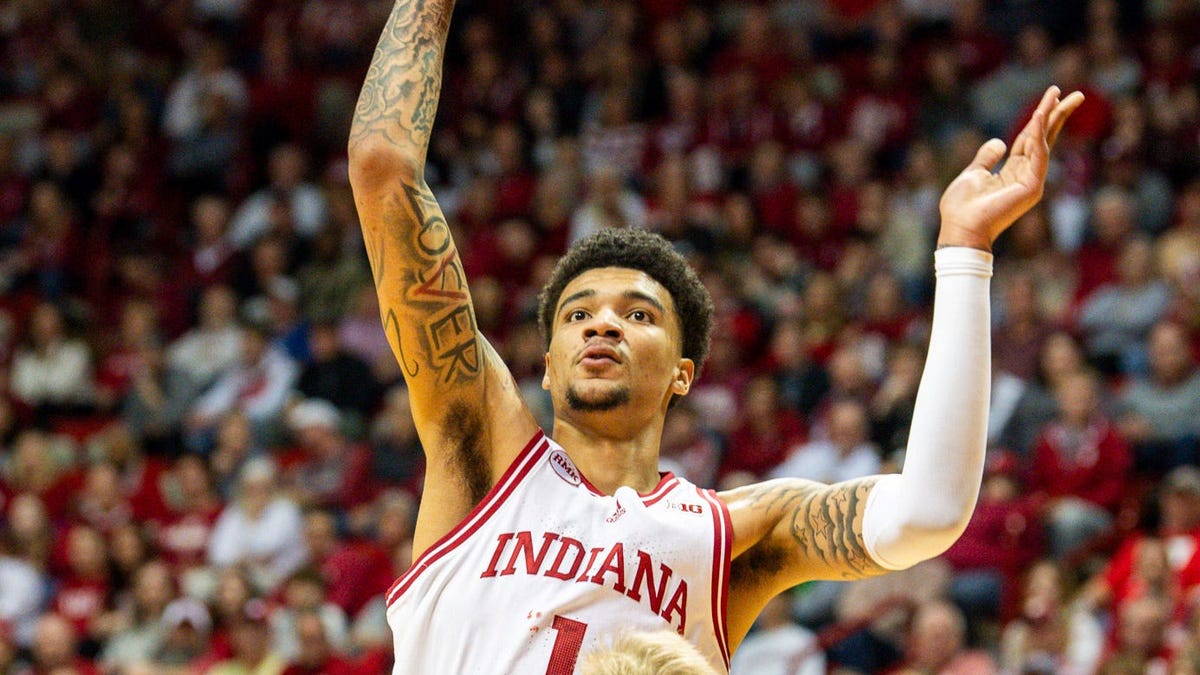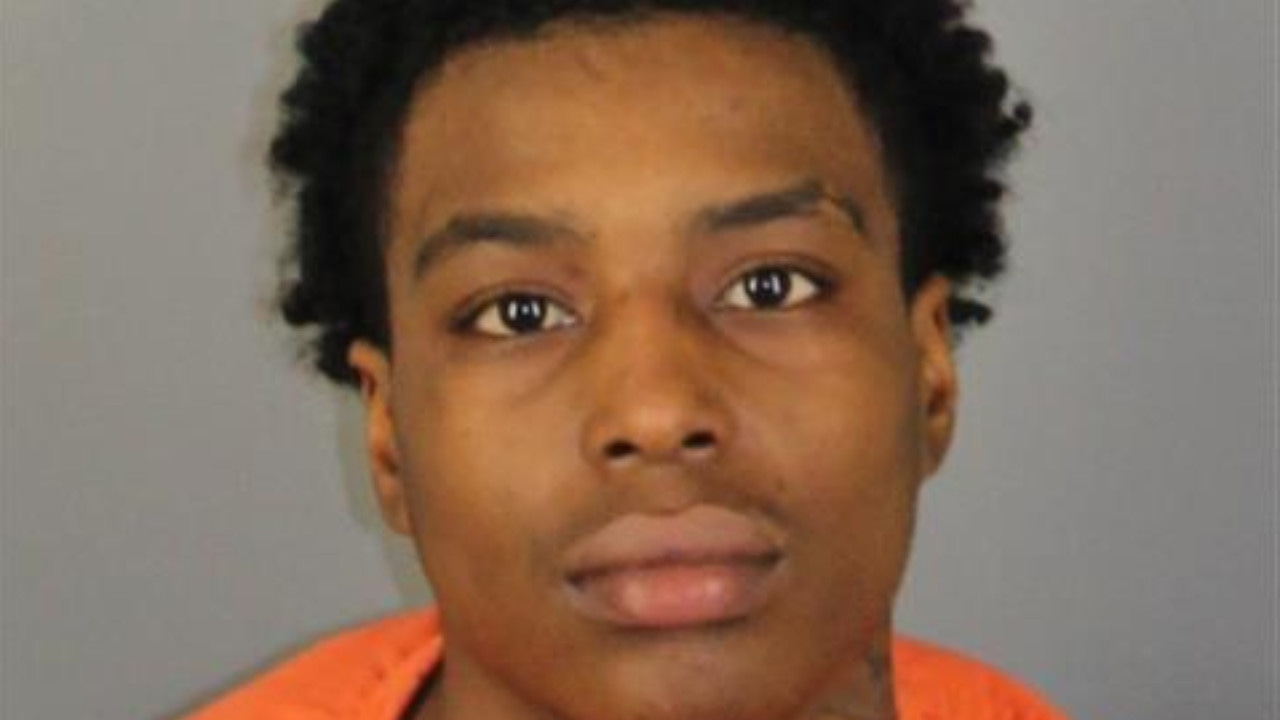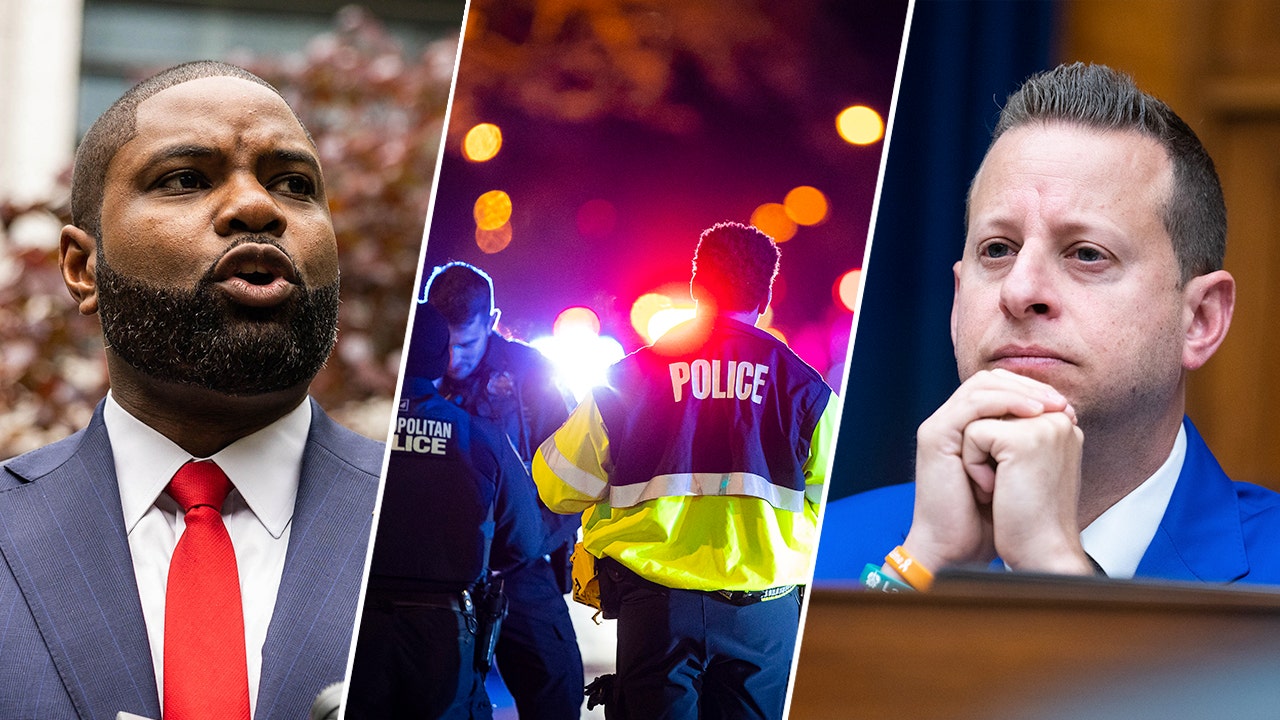- Bill limits Supreme Court power to quash government decisions
- Nineteen arrested as protests break out across Israel
- Popular protests have spread to military
- Opposition pledges to challenge changes
World
Protests rock Israel as it passes curbs on some Supreme Court powers
/cloudfront-us-east-2.images.arcpublishing.com/reuters/IJYYKCPZOBJXDILBS36UFV23UU.jpg)
JERUSALEM, July 24 (Reuters) – Israel’s parliament on Monday ratified the first bill of a judicial overhaul sought by Prime Minister Benjamin Netanyahu, after last-gasp compromise efforts collapsed and failed to ease a constitutional crisis convulsing the country for months.
The amendment limiting the Supreme Court’s powers to void some government decisions if it deemed them “unreasonable” passed by a 64-to-0 vote after opposition lawmakers abandoned the session in protest, some of them shouting: “For shame!”
Demonstrations against the amendment began early in the day with police dragging away protesters who had chained themselves to posts and blocked the road outside parliament. By evening, thousands had taken to the streets across the country, blocking highways and scuffling with police. Israeli police said at least 19 people had been arrested on Monday.
But the government held firm. Justice Minister Yariv Levin, an architect of the legislative package cast by Netanyahu as needed to create more balance among branches of government, called Monday’s vote a “first step”.
The amendment is part of broader judicial changes the government announced in January, soon after it was sworn in, which it says are needed to push back against what it describes as overreach by a Supreme Court that it says has become too politically interventionist.
Critics say the changes will open the door to abuses of power by removing effective checks on the executive’s authority. The planned changes have caused months of unprecedented nationwide protests and stirred concern among allies abroad for Israel’s democratic health.
Within minutes of the vote, a political watchdog group and the centrist opposition leader said they would appeal against the law at the Supreme Court.
Netanyahu, in televised remarks after sundown as the protests raged, said he would seek dialogue with the opposition with the aim of reaching an all-inclusive agreement by the end of November.
“We all agree that Israel must remain a strong democracy, that it must continue protecting individual rights for everyone, that it will not become a state of (Jewish law), that the courts will remain independent,” said Netanyahu, who had been discharged from hospital in the morning fitted with a pacemaker.
[1/8]Protesters block part of Ayalon Highway during a demonstration following a parliament vote on a contested bill that limits Supreme Court powers to void some government decisions, in Tel Aviv, Israel, July 24, 2023. REUTERS/Corinna Kern
The crisis has caused a deep divide in Israeli society and has seeped into the military, with protest leaders saying thousands of volunteer reservists would not report for duty if the government continues with the plans and former top brass warning that Israel’s war-readiness could be at risk.
Protesters who had converged on Jerusalem blocked a highway near parliament and were cleared by police dragging them across the asphalt and using water cannons, including one that sprayed a foul-smelling substance.
“It’s a sad day for Israeli democracy… We’re going to fight back,” said Inbar Orpaz, 36, speaking among the crowd outside parliament.
In Tel Aviv, horse-mounted police tried to disperse a crowd on the main highway, where protesters lit small fires.
Outside the city, a driver rammed into a small crowd that was blocking a road, lightly wounding three people, police said, adding that the car’s owner was later arrested.
After the law passed, the White House repeated its call for Israel’s leaders to work toward “as broad a consensus as possible” through political dialogue.
Tel Aviv’s main share indices tumbled as much as 2.5% after the vote in Knesset and the shekel slid 1% against the dollar.
Opposition leaders pledged to challenge the change.
The head of the Histadrut labour federation, after failing to mediate a compromise between the religious-nationalist coalition and opposition parties, threatened to declare a general strike if the government pursued “unilateral” measures.
A senior member of the opposition, Benny Gantz, promised to roll back the legislation while opposition leader Yair Lapid said: “This government can win the battle, but not the war.”
Additional reporting by Maayan Lubell, Dan Williams, Steven Scheer, Henriette Chacar, Matt Spetalnick and Rami Ayyub; Editing by Miral Fahmy, Tomasz Janowski, Nick Macfie and Rosalba O’Brien
Our Standards: The Thomson Reuters Trust Principles.

Continue Reading
World
Democratic Divide on Gaza War, Campus Protests Hurting Biden, Reuters/Ipsos Poll Finds
By Jason Lange and James Oliphant WASHINGTON (Reuters) – Democrats are deeply divided over President Joe Biden’s handling of both the war in Gaza and the U.S. campus protests against it, a new Reuters/Ipsos poll found, fraying the coalition that he relied on four years ago to defeat Republican …
World
Slovakia's prime minister expected to survive assassination attempt as shock reverberates across Europe
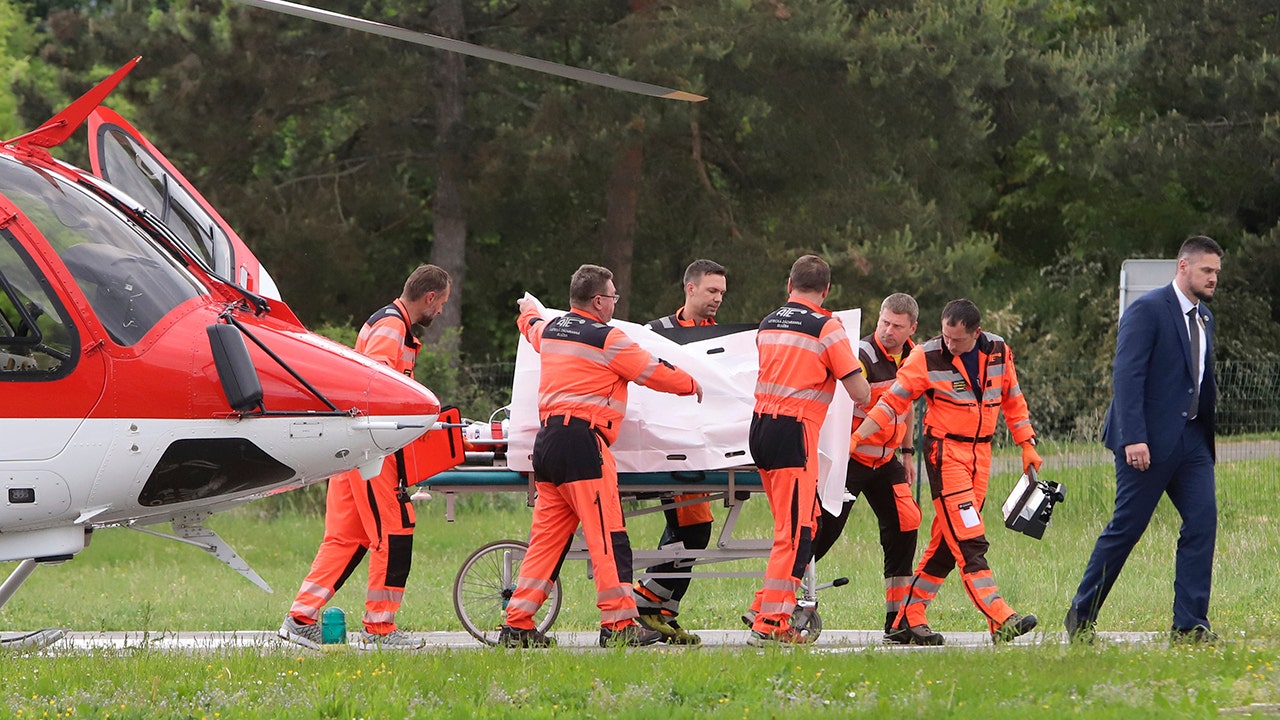
Slovakia’s prime minister is expected to survive after he was shot multiple times and gravely wounded during an attempted assassination on Wednesday, according to his deputy.
Doctors fought for several hours to save Prime Minister Robert Fico’s life after he was shot in the abdomen while he was greeting supporters at an event outside a cultural center in the town of Handlova, Defense Minister Robert Kalina told reporters.
“I guess in the end he will survive,” Deputy Prime Minister Tomas Taraba told the BBC, adding: “He’s not in a life-threatening situation at this moment.”
A suspect was swiftly arrested following the attack Wednesday and an initial investigation found “a clear political motivation,” Interior Minister Matus Sutaj Estok said.
RUSSIA’S MILITARY CLAIMS TO HAVE SHOT DOWN 10 U.S.-SUPPLIED MISSILES OVER CRIMEA AS BLINKEN VISITS UKRAINE
Rescue workers wheeled Slovak Prime Minister Robert Fico to a hospital after the shocking assassination attempt on him on Wednesday. (Jan Kroslak/TASR via AP)
The 59-year-old’s attempted assassination just weeks before an election shocked the small country and reverberated concern across Europe.
“A physical attack on the prime minister is, first of all, an attack on a person, but it is also an attack on democracy,” said outgoing President Zuzana Caputova, Fico’s political rival. “Any violence is unacceptable. The hateful rhetoric we’ve been witnessing in society leads to hateful actions. Please, let’s stop it.”
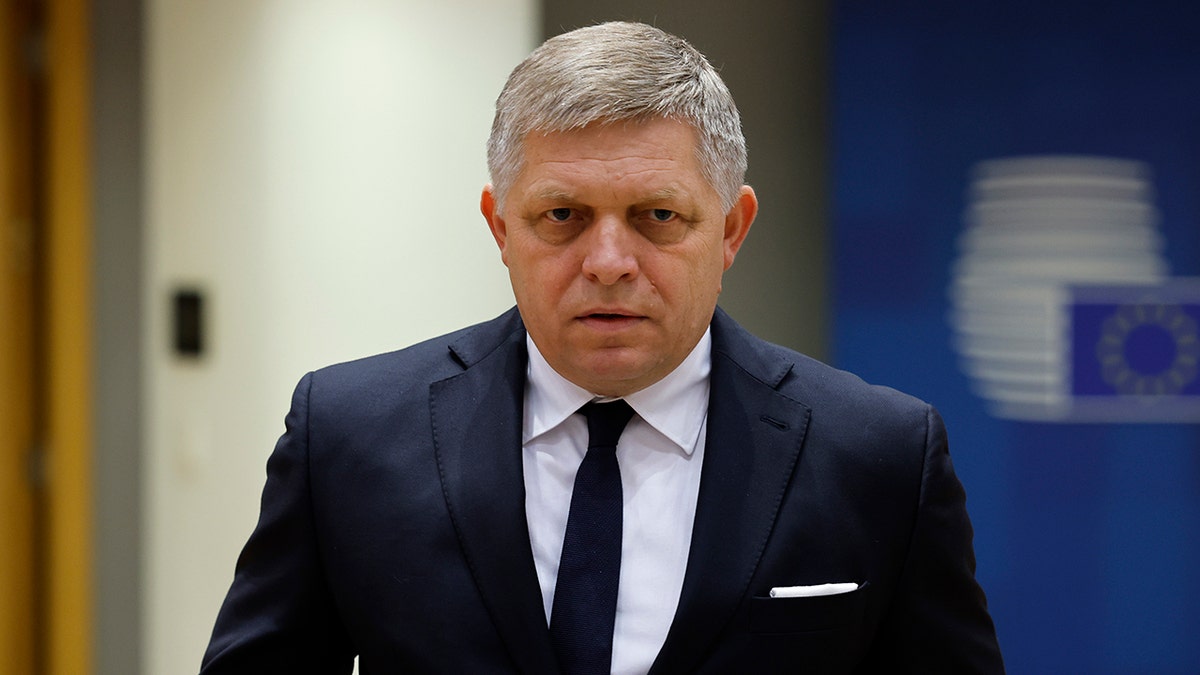
Slovakia’s populist Prime Minister Robert Fico was wounded in a shooting at an event Wednesday afternoon, according to his Facebook profile. (AP Photo/Geert Vanden Wijngaert)
President-elect Peter Pellegrini, an ally of Fico, called the shooting “an unprecedented threat to Slovak democracy. If we express other political opinions with pistols in squares, and not in polling stations, we are jeopardizing everything that we have built together over 31 years of Slovak sovereignty.”
US MILITARY CONSTRUCTS HULKING METAL PIER AMID BIDEN’S $320 MILLION GAMBLE TO GET AID INTO GAZA
Ukrainian President Volodymyr Zelenskyy also denounced the violence.
“Every effort should be made to ensure that violence does not become the norm in any country, form or sphere,” he said.
Czech Prime Minister Petr Fiala chimed in with other world leaders and wished the prime minister a swift recovery, saying “we cannot tolerate violence, there’s no place for it in society.”
The Czech Republic and Slovakia formed Czechoslovakia until 1992.
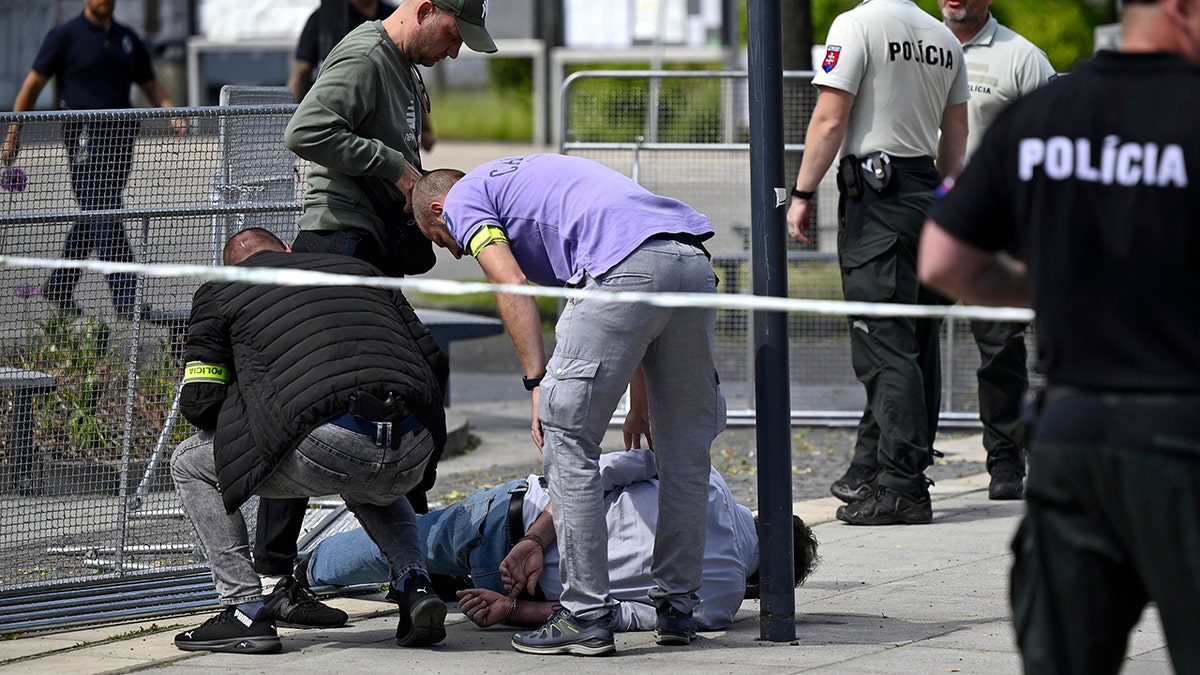
The man accused of shooting Slovak Prime Minister Robert Fico during an event in the town of Handlova, Slovakia, on Wednesday, was arrested by police quickly after the incident. (Radovan Stoklasa/TASR via AP)
Fico, a divisive figure in Slovakia, returned to power last year after campaigning on a pro-Russian, anti-American platform.
At the time, European Union members expressed worry that he could potentially lead Slovakia – a nation of 5.4 million that belongs to NATO – to abandon its pro-Western course.
The Associated Press contributed to this report.
World
Slovakia PM Robert Fico in ‘very serious’ condition after being shot

Deputy PM Kalinak says Fico is stable post-surgery after being shot five times in an attempted assassination.
Slovakia’s Prime Minister Robert Fico is stable but his condition remains “very serious”, his deputy has said, after an assassination attempt that shocked the country and drew global condemnation.
Fico, 59, was shot five times in the central town of Handlova on Wednesday. He was in critical condition and underwent several hours of emergency surgery.
“During the night, doctors managed to stabilise the patient’s condition,” Deputy Prime Minister Robert Kalinak said on Thursday.
“Unfortunately, the condition is still very serious as the injuries are complicated,” said Kalinak, who is also the defence minister.
A state security council meeting is scheduled for Thursday following the attack. The alleged attacker, a 71-year-old writer, was taken into custody.
Environment Minister Tomas Taraba told the BBC on Thursday that the operation had “gone well”. He said one bullet went through Fico’s stomach, and the second hit a joint during the attack after Fico left a government meeting.
The shooting was “politically motivated”, Interior Minister Matus Sutaj Estok said on Wednesday.
“This assassination [attempt] was politically motivated, and the perpetrator’s decision was born closely after the presidential election,” Sutaj Estok said, referring to an April election won by Fico’s ally, Peter Pellegrini.
Pellegrini described the attack as an “unprecedented threat to Slovak democracy”.
“If we express other political opinions in squares, and not in polling stations, we are jeopardising everything that we have built together over 31 years of Slovak sovereignty,” Pellegrini said.
Following the attack, Fico was rushed to a hospital in Handlova but was transferred by helicopter to the regional capital, Banska Bystrica, for urgent treatment.
Russia said it considered the attack “absolutely unacceptable”.
“This is really a great tragedy,” Kremlin spokesperson Dmitry Peskov said on Thursday.
Fico’s European counterparts, including Germany’s Chancellor Olaf Scholz and British Prime Minister Rishi Sunak, condemned the shooting and wished him a complete recovery.
The country of 5.4 million has seen polarised political debate in recent years, including last year’s presidential election that helped Fico tighten his grip on power.
Since returning as prime minister last October, his government has scaled back support for Ukraine while opening up dialogue with Russia, looked to lessen punishments for corruption, and is revamping the RTVS public broadcaster despite a call to protect media freedoms.
-

 News1 week ago
News1 week agoCompass Direct LLC’s 2024 Registration in North Carolina
-

 World1 week ago
World1 week agoTech compliance reports, Newsletter
-

 News1 week ago
News1 week agoMan, 75, confesses to killing wife in hospital because he couldn’t afford her care, court documents say
-

 News1 week ago
News1 week agoColumbia University cancels its main commencement ceremony after weeks of turmoil
-

 World1 week ago
World1 week agoPentagon chief confirms US pause on weapons shipment to Israel
-

 Politics1 week ago
Politics1 week agoPresidential polls show deadlocked race as party conventions quickly approach
-

 Politics1 week ago
Politics1 week agoRFK Jr said a worm ate part of his brain and died in his head
-

 World1 week ago
World1 week agoConvicted MEP's expense claims must be published: EU court


